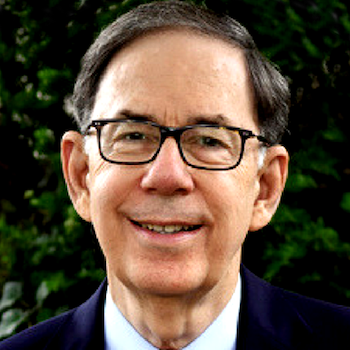Back to series

The Transformation of our Heart's Desires
Click here to open a Print-Friendly PDF
The desires of one’s heart will determine the direction of one’s life and ultimately one’s eternal destiny. This simple but profound truth is obvious, yet it is often neglected. For many of us, daily life is busy, pressured, distracted, and bombarded with what seems like an unending stream of alluring enticements designed to capture our attention and shape our desires. It is a battleground that can easily hijack our spiritual lives. How do we navigate around the seductions of this fallen world and faithfully follow Jesus in daily life? The key is in and with our heart’s desires. We begin by asking whether desire itself is our fundamental problem. That is certainly the view of Buddhism, which sees desire as the root of suffering and seeks to extinguish it. It has also been the view of various philosophical and religious ascetics in history. Some in the church have considered desires for food, sleep, and sex as obstacles to spiritual life and gone to unbiblical extremes in abstaining from them, even though they are God’s good gifts to humankind and bring blessings when used properly.
The Biblical View of Desire
 Scripture shows us that desire is not inherently evil but is good or bad depending on whether it is God-centered or self-centered. God made us to be desiring creatures. His intention in doing so was for our desire to be focused upon Him and His will — for Him to be the freely chosen supreme love and desire of our hearts and the sole object of our worship and for His will to be our will. When our desires are God-centered, they are good and fulfill their intended role. But when they are self-centered, when our desires are captured by the things of the fallen world and the sinful nature (the flesh), they are evil. These have been called disordered loves.
Scripture shows us that desire is not inherently evil but is good or bad depending on whether it is God-centered or self-centered. God made us to be desiring creatures. His intention in doing so was for our desire to be focused upon Him and His will — for Him to be the freely chosen supreme love and desire of our hearts and the sole object of our worship and for His will to be our will. When our desires are God-centered, they are good and fulfill their intended role. But when they are self-centered, when our desires are captured by the things of the fallen world and the sinful nature (the flesh), they are evil. These have been called disordered loves.
We see this in the story of Adam and Eve, who were originally innocent creatures who loved God and lived in an uncorrupted world. They fell not because they experienced the serpent’s temptation to “be like God” (Gen. 3:5),1 but because they acted upon it. Instead of immediately rejecting the temptation out of hand as contrary to God’s will, they chose to consider it. As they did, its attractiveness grew, and selfish desire for it increased and conceived. This led to rationalizations to justify disobedience to God’s explicit command (Gen. 3:6). Finally, it gave birth to sin, and they ate the fruit. This deliberate choice to satisfy their desire — to please themselves instead of God — brought spiritual death.
The Corruption of Desire
The spiritual death that Adam and Eve experienced resulted in a profound transformation in their souls. Their rebellion and drive for autonomy fractured the happy relationship they had always enjoyed with the God who loved them, leaving them alienated from Him and each other. The image of God in which they had been created became deeply corrupted. The God-centeredness of their former innocence would no longer govern their heart’s desires. Instead, self-centeredness and self-seeking would dominate their desires and the desires of all their descendants down to the present day.
But God was merciful and did not leave them — or us — in complete darkness. A remnant of His image remains and with it a God-shaped vacuum in the human heart. Lost people typically experience this void as a vague sense that something is missing — that there is more to life than what they have found so far. This leads to a restlessness in the soul, a thirst, a longing, a desire for the undefinable “something” that is missing. In an attempt to find it, people stumble and grope in spiritual darkness, pursuing substitutes (which they may or may not connect with God). In ancient Israel, stone and wooden images representing nature gods were common. Today, meaning, purpose, success, power, prosperity, career, possessions, pleasure, fame, peace, security, and happiness… are common.
 Whatever the substitute may be, it grows into a matter of ultimate concern around which people organize their lives. From a biblical perspective, one’s ultimate concern is the object of one’s worship. Although the supreme and only proper object worthy of worship is God, throughout the Bible we see human beings regularly creating substitutes — idols — instead of worshiping the true and living God. But these idols can never fully or permanently satisfy the restless heart of fallen humanity, and we continue to thirst for that undefinable “something” that is missing.
Whatever the substitute may be, it grows into a matter of ultimate concern around which people organize their lives. From a biblical perspective, one’s ultimate concern is the object of one’s worship. Although the supreme and only proper object worthy of worship is God, throughout the Bible we see human beings regularly creating substitutes — idols — instead of worshiping the true and living God. But these idols can never fully or permanently satisfy the restless heart of fallen humanity, and we continue to thirst for that undefinable “something” that is missing.
This is why God urges those who are mired in darkness and deception to receive His grace:
Come, everyone who thirsts, come to the waters; and he who has no money, come, buy and eat! Come, buy wine and milk without money and without price. Why do you spend your money for that which is not bread, and your labor for that which does not satisfy? Listen diligently to me, and eat what is good, and delight yourself in rich food. Incline your ear, and come to me; hear, that your soul may live. (Isa. 55:1–3)
This grace-filled invitation is characteristic of the God of the Bible, who loves His fallen creatures.
The Believing Soul’s Thirst for God
In the Old Testament, God calls those who receive His grace to love Him supremely and enthrone Him as their heart’s desire (Deut. 6:4). As they seek to do so, a paradoxical change occurs. The initial thirst of their hearts is satisfied by His grace and love. But, in time, this very satisfaction fuels thirst for deeper intimacy and communion with Him. Consider, for example:
David said, “One thing I have asked of the Lord, that will I seek after: that I may dwell in the house of the Lord all the days of my life, to gaze upon the beauty of the Lord and to inquire in his temple” (Ps. 27:4).
Again, he said, “O God, you are my God; earnestly I seek you; my soul thirsts for you; my flesh faints for you, as in a dry and weary land where there is no water. So have I looked upon you in the sanctuary, beholding your power and glory. Because your steadfast love is better than life, my lips will praise you. So I will bless you as long as I live” (Ps. 63:1–4).
Later in his life, David says, “I remember the days of old; I meditate on all that you have done; I ponder the work of your hands. I stretch out my hands to you; my soul thirsts for you like a parched land” (Ps. 143:5–6).
One of the Sons of Korah penned these lines, “As a deer pants for flowing streams, so pants my soul for you, O God. My soul thirsts for God, the living God” (Ps. 42:1–2).
And Asaph expresses his desire for God in these timeless words: “Whom have I in heaven but you? And there is nothing on earth that I desire besides you. My flesh and my heart may fail, but God is the strength of my heart and my portion forever” (Ps. 73:25–26).
Do you thirst for God as these believers did? If not, would you like to?
Thirsting for Jesus, God’s Son
 In the New Testament, God invites us to Himself through His Son, Jesus. He alone can reconcile us to the Father and bring peace and satisfaction to our restless hearts. To an audience of believers and nonbelievers, Jesus said, “I am the bread of life; whoever comes to me shall not hunger, and whoever believes in me shall never thirst” (John 6:35).
In the New Testament, God invites us to Himself through His Son, Jesus. He alone can reconcile us to the Father and bring peace and satisfaction to our restless hearts. To an audience of believers and nonbelievers, Jesus said, “I am the bread of life; whoever comes to me shall not hunger, and whoever believes in me shall never thirst” (John 6:35).
At a climactic point in the annual Feast of Tabernacles, Jesus stood up and cried out to the multitude of worshipers, “‘If anyone thirsts, let him come to me and drink. Whoever believes in me, as the Scripture has said, “Out of his heart will flow rivers of living water.”’ Now this he said about the Spirit, whom those who believed in him were to receive, for as yet the Spirit had not been given, because Jesus was not yet glorified” (John 7:37–39). Jesus invited those who were thirsty for God to come to Him, the Messiah, trusting that in and through Him their thirst would be satisfied. And to that invitation, He attached an astounding promise.
When He spoke these words, the world was at the threshold of the new covenant, which would be established in a matter of days by Jesus’s atoning sacrifice on the cross and His resurrection from the grave. Those events opened the door for “the promise of my Father” (Luke 24:49)—the outpouring of the Holy Spirit at Pentecost. Thus Jesus promises that those thirsting souls who accept His invitation, who trust and commit themselves to Him as God’s Son, Messiah and Lord, will receive an overflowing fullness of the Holy Spirit, which will satisfy the thirst of their souls. Notice that Jesus did not promise trickles or small streams but rivers of living water. And that He promised this not just to a select few (as in the Old Testament), but to everyone who truly believes in Him. Later in the Gospel of John, Jesus says that the Spirit will literally dwell in every believer (John 14:17). This means that the normal Christian life is to be a life of the Spirit’s daily fullness and power, manifested in godly living and service. As one writer said, it is a life that is copiously, conspicuously and consistently filled with the Holy Spirit. This is certainly what we see in the book of Acts. Does it describe your experience?
The Battle We Face
If the previous paragraph is correct, then we must ask why it is that many believers do not seem to experience the fullness of the Spirit that Jesus promised. Let’s look at some of the main reasons. When we are converted and become followers of Jesus, we are thrust into a spiritual war against the world, the flesh, and the devil, which formerly enslaved us (Eph. 2:1–3). We may not realize that we are in such a war, but it is real and will continue throughout our lives. Failure to engage in the battle is one of the main reasons we live defeated lives.
The most immediate and obvious front in this battle involves the desires of the flesh (our old fallen nature). Soon after one’s conversion, these desires will try to assert themselves. Although the term flesh is commonly associated with sexual desires, it actually takes many forms. These are often connected to sinful beliefs, behaviors, and patterns that became engrained in our “old self” before we come to Christ. These desires do not evaporate at conversion, never to be seen again. Although their power to control us is decisively broken, and we are liberated to obey God, more is necessary. As the apostle Paul explained to the believers in Rome, “We know that our old self was crucified with him [Christ] in order that the body of sin might be brought to nothing, so that we would no longer be enslaved to sin” (Rom. 6:6). However — and this is crucial to understand — we do not experience this new freedom automatically. We must choose to obey.
This is why Paul went on to say, “Let not sin therefore reign in your mortal body, to make you obey its passions. Do not present your members to sin as instruments for unrighteousness, but present yourselves to God as those who have been brought from death to life, and your members to God as instruments for righteousness” (Rom. 6:12–13). Similarly, Paul instructs the believers in Ephesus “to put off your old self, which belongs to your former manner of life and is corrupt through deceitful desires, and to be renewed in the spirit of your minds, and put on the new self, created after the likeness of God in true righteousness and holiness” (Eph. 4:22–24). Clearly, to experience freedom in Christ and victory over sin, we must choose to reject sinful desires, resist temptation, and obey God. This is part of what it means to submit to the lordship of God and of Christ (which is not optional). Strangely, it seems that many people are unaware of this and assume that they will grow better over time with no particular effort.
The wider context of our battle against the flesh is the world. The world I am talking about is not the beautiful earth God has given us or the good things in it. Rather, it is the world that is in revolt against God and operates as if God didn’t exist. It is all around us and is manifested in an intricate, interconnected web of beliefs, values, behaviors, institutions, and the culture they form. We will be tempted and enticed to love the things of this fallen world in which we live, which is a major challenge for believers today. But this is not a new problem, and ancient wisdom can help us. In the first century, Paul exhorted the believers in Rome, “Do not be conformed to this world, but be transformed by the renewal of your mind, that by testing you may discern what is the will of God, what is good and acceptable and perfect” (Rom. 12:2). Or, in the more vivid words of the New Living Translation, “Don’t copy the behavior and customs of this world, but let God transform you into a new person by changing the way you think. Then you will learn to know God’s will for you, which is good and pleasing and perfect.” The apostle John also strongly warned believers about the dangers of the fallen world system in which they lived,
Do not love the world or the things in the world. If anyone loves the world, the love of the Father is not in him. For all that is in the world — the desires of the flesh and the desires of the eyes and the pride of life — is not from the Father but is from the world. And the world is passing away, along with it desires, but whoever does the will of God abides forever. (1 John 2:15–17)
 Yielding to the sinful desires of the fallen world results in disordered loves, which draw us away from wholehearted love for God and into idolatries of various kinds. These idolatries corrupt and distort our lives and take a heavy toll on us and our families.
Yielding to the sinful desires of the fallen world results in disordered loves, which draw us away from wholehearted love for God and into idolatries of various kinds. These idolatries corrupt and distort our lives and take a heavy toll on us and our families.
The third major force in our war is the devil, whom Jesus called “the ruler of this world” (John 14:30) and Paul described as “the god of this world” (2 Cor. 4:4). The devil seeks to stimulate sinful desires in our hearts. He does this by fanning the flames of desire for the things of the flesh and the world. His goal is to draw us away from God, ensnare us in sin, and plunge us into destruction. Paul urges the believers in Ephesus to
be strong in the Lord and the strength of his might. Put on the full armor of God, that you may be able to stand against the schemes of the devil. For we do not wrestle against flesh and blood, but against the rulers, against the authorities, against the cosmic powers over this present darkness, against the spiritual forces of evil in the heavenly places. (Eph. 6:10–12)
Similarly, Peter urges believers to “be sober-minded; be watchful. Your adversary the devil prowls around like a roaring lion, seeking someone to devour. Resist him, firm in your faith, knowing that the same kinds of suffering are being experienced by your brotherhood throughout the world” (1 Pet. 5:8–9). James is blunt: “Resist the devil, and he will flee from you” (James 4:7).
Understanding Our Temptations
The passages above highlight the role of sinful desires in relation to the world, the flesh, and the devil. Let’s now look at how these desires operate in the process of temptation. James 1:13–15 gives helpful insight:
Let no one say when he is tempted, “I am being tempted by God,” for God cannot be tempted with evil, and he himself tempts no one. But each person is tempted when he is lured and enticed by his own desire. Then desire when it has conceived gives birth to sin, and sin when it is fully grown brings forth death.

This raises the question of what sinful desires, known or unknown, may lurk in our hearts or pose special dangers. Uncovering and dealing with these vulnerabilities is crucial if we are to avoid being ensnared in sin. As Proverbs 4:23 says, “Above all else, guard your heart, for everything you do flows from it” (NIV). Prayer is the starting point; ask God to help you. You might begin with the prayer for purity in the Book of Common Prayer: “Almighty God, to you all hearts are open, all desires known, and from you no secrets are hid: cleanse the thoughts of our hearts by the inspiration of your Holy Spirit, that we may perfectly love you, and worthily magnify your holy name; through Christ our Lord.” Self-examination is likewise essential. We might pray with St. Augustine, “Lord Jesus, let me know myself, and let me know you, and desire nothing save only you.” Ask yourself, What does my mind gravitate to when I am unencumbered and free to think whatever I wish? Do I experience recurring fantasies? Upon what or whom do my affections tend to focus? What do I feel that I must acquire or accomplish in life? Are any of these influences at work in me: pride, vainglory, envy, sloth, avarice, anger, gluttony, and lust. Over the centuries, such prayerful self-examination has helped believers recognize sinful desires in their hearts and avoid being drawn into them.
God’s Power to Overcome
How on earth, you may ask, can I possibly fight such a battle, much less enthrone God as my heart’s desire? Given my weaknesses and the strength of my sinful temptations, it seems impossible.

You are correct, it is impossible — unless we have supernatural help. This brings us back to the promise of Jesus that “rivers of living water” would flow out of the heart of everyone who truly believes in Him. As we saw earlier, “This he said about the Spirit, whom those who believed in him were to receive” (John 7:38–39). This fullness of the Holy Spirit, the third Person of the Trinity, is essential for living the normal Christian life. Only through the presence and power of the indwelling Spirit can we resist sinful desires, overcome temptation and glorify God.
Paul emphasized the necessity of the Holy Spirit’s daily enablement when he commanded (and yes, it is a command in Greek) the Ephesian believers to “be filled with the Spirit” (Eph. 5:18). The literal translation of the Greek here is “let yourself be continuously filled,” which is just a different way of describing rivers of living water. Only by the Spirit’s fullness can we live the Christian life. As Paul told the Galatians, “walk by the Spirit, and you will not gratify the desires of the flesh. For the desires of the flesh are against the Spirit, and the desires of the Spirit are against the flesh, for these are opposed to each other” (Gal. 5:16–17). Clearly, this internal conflict can be won with the Spirit’s help, says Paul, in 1 Corinthians 10:13.
For this to become a reality in our lives, it is essential to make (and continue each day to make) a wholehearted surrender of ourselves to God (Rom. 12:1). Failure here is what keeps many believers mired in defeat. It is impossible to be filled with the Holy Spirit—that is, for the Spirit to have control of our lives—if we are insisting on retaining control. But when we surrender, the Spirit can fill us, God is enthroned in our hearts, and our thirst for Jesus is satisfied. (When we stumble and sin, and we will, we can be restored by repenting, forsaking our sin, and seeking to be filled afresh.)
How does our heart’s desire for God increase? I say “increase” because, as we saw earlier, our desire for God is meant to grow over time. Although this is ultimately a work of the Holy Spirit and takes time, we have an essential part to play. It begins with a desire, however small, to know more intimately and love more fully God and His Son. If we lack this, we should ask God to search our hearts and reveal what is hindering it (Ps. 139:23–24). Are we spiritually complacent? Or is our desire focused on things of the fallen world? Or the desires of the flesh, the fallen nature? Or is there some other issue? God will show us if we really want to draw near to Him.

Along with some measure of desire, regular Bible meditation on the character and works of God is vital. This feeds our hunger and thirst for Him. Likewise, it is essential to meditate on Jesus—His life, teaching, cross, resurrection and ascension. As Paul says, “And we all, with unveiled face, beholding the glory of the Lord, are being transformed into the same image from one degree of glory to another” (2 Cor. 3:18). Regularly and prayerfully taking communion is also very important, as is periodic fasting as we seek His face. Finally, we must trust in His love and faithfulness, for He never turns away any soul that is earnestly seeking after Him.
Seeking God in this private and intimate way is essential, but we must always bear in mind that it occurs in the larger context of one’s church life. We must avail ourselves of all the means God has given to help us grow and mature in grace, especially Scripture, prayer, fellowship, and worship in a Christ-centered, Bible-believing community (Acts 2:42). This puts us in a good environment in which to grow in grace and to increasingly enthrone God as the supreme desire of our hearts and serve Him in the world. This also puts us in the best position to successfully fight the battle against the world, the flesh, and the devil. In conclusion, desire for God and Christ, expressed in wholehearted surrender and the fullness of the Spirit, enables us to live as faithful disciples of Jesus who bear much fruit and glorify Him in daily life.
Notes:
1 Unless otherwise noted, all Scripture quotations are English Standard Version.

Tom Tarrants
Recommended Reading:
Sinclair B. Ferguson, Devoted to God: Blueprints for Sanctification (Banner of Truth, 2016)
 Christians are transformed by the renewing of their minds. They understand that in large measure how they think about the gospel will determine how they will live for God's glory. They learn to allow the word of God to do its own work, informing and influencing the way they think in order to shape the way they live.
Christians are transformed by the renewing of their minds. They understand that in large measure how they think about the gospel will determine how they will live for God's glory. They learn to allow the word of God to do its own work, informing and influencing the way they think in order to shape the way they live.
In a series of Scripture-enriched chapters Sinclair B. Ferguson's Devoted to God works out this principle in detail. It provides what he describes as “blueprints for sanctification” — an orderly exposition of central New Testament passages on holiness. Devoted to God thus builds a strong and reliable structural framework for practical Christian living. It stresses the foundational importance of fundamental issues such as union with Christ, the rhythms of spiritual growth, the reality of spiritual conflict, and the role of God's law. Here is a fresh approach to an always relevant subject, and a working manual to which the Christian can turn again and again for biblical instruction and spiritual direction.
COPYRIGHT NOTICE: Knowing & Doing is published by C.S. Lewis Institute; 8001 Braddock Road, Suite 301; Springfield, VA 22151. Portions of the publication may be reproduced for noncommercial, local church or ministry use without prior permission. Electronic copies of the PDF files may be duplicated and transmitted via e-mail for personal and church use. Articles may not be modified without prior written permission of the Institute. For questions, contact the Institute: 703.914.5602 or email us.
-
Recent Podcasts
From Anti-Christian to Pastor – Brian Smith’s Story
by Jana Harmon, Brian Smith on January 17, 2025Brian grew up in a small Georgia town...Read More
-
Time With God
by Aimee Riegert, J.I. Packer on January 10, 2025
-
Faith and Reason – Henare Whaanga’s Story
by Henare Whaanga, Jana Harmon on January 3, 2025
-
Recent Publications
Why Are Christians So Hypocritical?
by William L. Kynes on January 1, 2025Oh, the hypocrisy of those Christians—they talk so...Read More
-
How Artists and Their Art Can Point Us to the Creator
by Russ Ramsey on December 2, 2024
-
What about Jesus’s Childhood?
by Jim Phillips on December 1, 2024
0
All Booked
0.00
All Booked
0.00
All Booked
23931
GLOBAL EVENT: Sentenced to Death with Maryam Rostampour-Keller, 8:00PM ET
https://www.cslewisinstitute.org/?event=global-event-sentenced-to-death-with-maryam-rostampour-keller-800pm-et&event_date=2025-02-07®=1
https://www.paypal.com/cgi-bin/webscr
2025-02-07

Next coming event
Days
Hours
Minutes
Seconds
GLOBAL EVENT: Sentenced to Death with Maryam Rostampour-Keller, 8:00PM ET
On February 7, 2025 at 8:00 pmSpeakers

Thomas A. Tarrants
Author, President Emeritus, CSLI
Team Members






